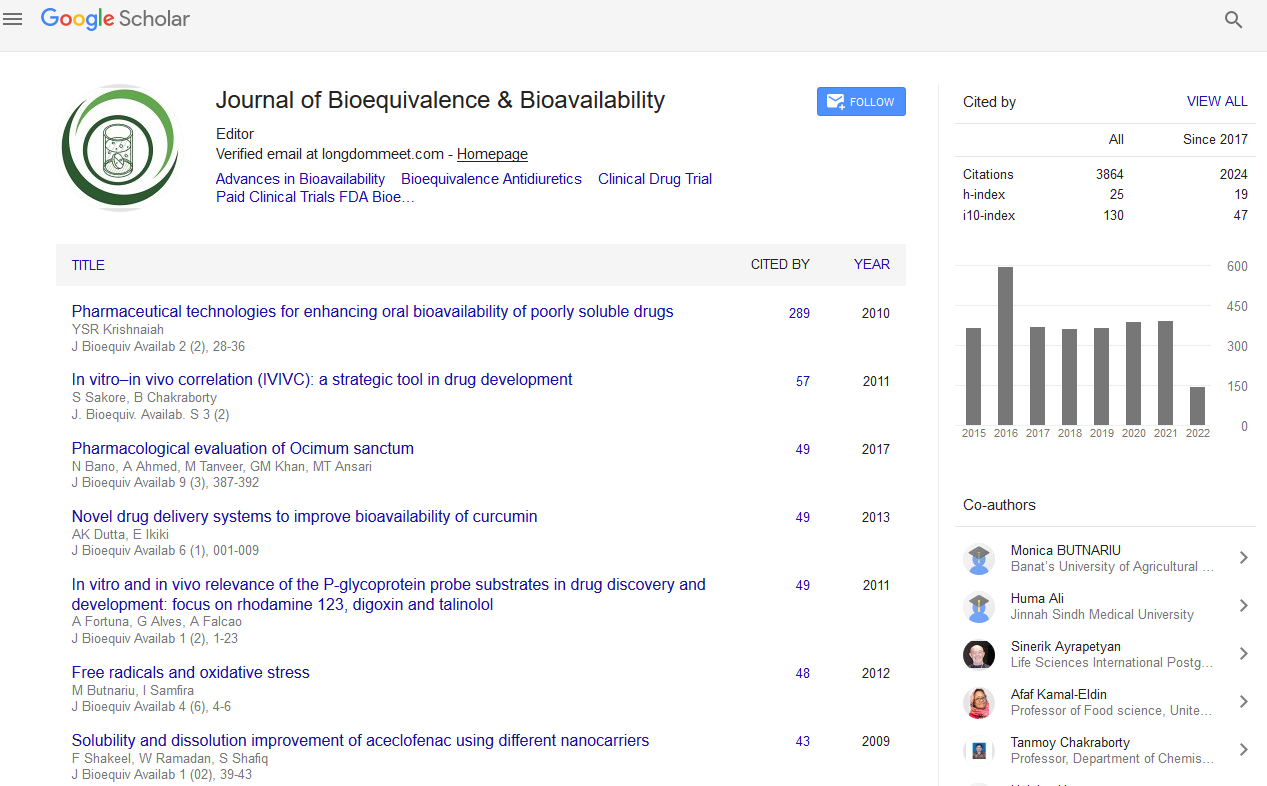PMC/PubMed Indexed Articles
Indexed In
- Academic Journals Database
- Open J Gate
- Genamics JournalSeek
- Academic Keys
- JournalTOCs
- China National Knowledge Infrastructure (CNKI)
- CiteFactor
- Scimago
- Ulrich's Periodicals Directory
- Electronic Journals Library
- RefSeek
- Hamdard University
- EBSCO A-Z
- OCLC- WorldCat
- SWB online catalog
- Virtual Library of Biology (vifabio)
- Publons
- MIAR
- University Grants Commission
- Geneva Foundation for Medical Education and Research
- Euro Pub
- Google Scholar
Useful Links
Share This Page
Journal Flyer

Open Access Journals
- Agri and Aquaculture
- Biochemistry
- Bioinformatics & Systems Biology
- Business & Management
- Chemistry
- Clinical Sciences
- Engineering
- Food & Nutrition
- General Science
- Genetics & Molecular Biology
- Immunology & Microbiology
- Medical Sciences
- Neuroscience & Psychology
- Nursing & Health Care
- Pharmaceutical Sciences
Understanding exclusivity periods in the Biologics Competition and Innovation Act of 2009 (BPCI Act)
International Conference and Exhibition on Biowaivers & Biosimilars
September 10-12, 2012 Hilton San Antonio Airport, USA
Susan K. Finston
Scientific Tracks Abstracts: J Bioequiv Availab
Abstract:
While welcoming passage of a regulatory pathway for Biosimilars in the United States through the Biologics Competition and Innovation Act of 2009 (BPCI Act), critics have questioned inclusion of exclusivity periods in addition to existing patent protection for innovative biologics. Questions include: ? Why do originators require special incentives provided by separate exclusivity periods, particularly given that the biosimilar sector likely will be dominated by a handful of global bio-pharma generic and innovator companies for the foreseeable future? ? If additional exclusivity is needed, why does the BPCI Act go beyond the exclusivity periods provided for small molecules through the Hatch-Waxman framework? This presentation will address these questions for a better understanding of the role of 4-year data exclusivity and 12- year overall marketing exclusivity periods in the BPCI Act. Importance of a period of data exclusivity for new products has increased substantially in recent years due to increasing prevalence of patent litigation. Independent of the patent period, Data Exclusivityprovides certainty for the originator by providing a fixed period for ROI. Serving as gatekeeper, the U.S. Government conserves valuable judicial resources and protects smaller biotech companies with weaker patent portfolios, where biosimilar manufacturers likely may be global players with deep pockets for patent litigation. The BPCI seeks to balance these competing interests of innovation and affordability, providing predictability for originator companies while ? for the first time ? facilitating entry of biosimilars for the U.S. market.
Biography :
Susan K. Finston, JD/MPP is the President of Finston Consulting LLC since 2005, Susan works with biopharmaceutical clients ranging from start-up to Fortune-100, providing support for legal, transactional, policy and "doing business" issues. Together with biotechnology pioneer AnandaChakrabarty, shealso isco-founder of Amrita Therapeutics Ltd., an emerging biopharmaceutical company based in India. Susan has extensive background and special expertise relating to intellectual property and knowledge-economy issues in advanced developing countries including India and South Asia, Latin America and the Middle East North Africa (MENA) region. She also works with governments, trade associations, companies and NGOs on capacity building and related educational materials and events.


